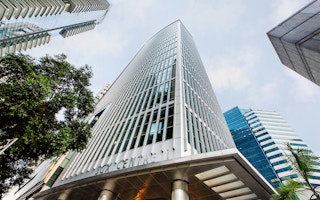Singapore Exchange, the city-state’s regulator for listed companies, has published its proposed guidelines that will form the basis of sustainability reporting starting financial year 2017 and is inviting the public to comment on them.
The new set of sustainability reporting rules - an update of the voluntary Sustainability Reporting Guide (the Guide) that was first introduced in 2011 - will be enforced on a ‘comply or explain’ basis, giving the more than 800 public companies in Singapore some flexibility to report in a way which best suits their industries and circumstances, SGX said on Tuesday.
The proposed rules are the result of a six-month dialogue with listed companies, investors and sustainability consultants that started in May last year.
Specifically, companies will have to include five components in their sustainability reports:
- Identification of material environmental, social and governance (ESG) factors
- Policies, practices and performance of the company in relation to each of the material ESG factors
- Targets for the forthcoming year
- A chosen reporting framework to guide the disclosure of information
- A statement by the board confirming compliance or description of alternative practice
SGX is also proposing that companies publish their reports within five months from the end of each financial year.
Yeo Lian Sim, special advisor, SGX told reporters at a briefing on Tuesday that the proposed rules are timely and appropriate, coming a few weeks after the historic Paris Agreement was signed by 195 nations at the United Nations climate summit to slash global greenhouse emissions.
“You can see that there are far-reaching events happening in the world,” she said. “It’s about the environment, society and governance. This is something that’s needed and asked for by investors as well as other stakeholders like customers, suppliers, staff, regulators and bankers.”
“So it’s not just about doing good, it’s about doing business,” Yeo added.
The public consultation is open until Feb 5 this year and copies of the proposals are available online at www.sgx.com. After the public consultation, SGX will then submit the new listing rule and Guide for approval to the Monetary Authority of Singapore.
SGX’s former chief executive officer Magnus Bocker first announced the reporting initiative in October 2014, noting that since SGX launched voluntary guidelines for sustainability reporting in 2011, take-up by companies has been “frankly, very slow,” with only a handful of companies embarking on such activities.
These firms include City Developments, a property developer, DBS Group, Singapore’s biggest bank and SingTel, the largest local telecoms company.
Some sustainability experts have previously noted that it was high time mandatory sustainability reporting is implemented in Singapore, given the city’s status as one of Asia’s financial hubs.
Other jurisdictions in Asia have been requiring companies to report for several years. For example, since 2007, Bursa Malaysia has required listed companies to disclose CSR activities and practices. In 2012, all state-owned enterprises in mainland China have been required to release CSR reports.
“
You can see that there are far-reaching events happening in the world. It’s about the environment, society and governance. This is something that’s needed and asked for by investors as well as other stakeholders like customers, suppliers, staff, regulators and bankers.
Yeo Lian Sim, special advisor, SGX
The Indonesia Bapepam requires that listed companies disclose specific ESG information. In February last year, the Taiwan Stock Exchange announced that specified listed companies will have to comply with mandatory CSR reporting annually and adhere to Global Reporting Initiative (GRI) G4 principles.
A study by Global Compact Network Singapore - the local chapter of the United Nations Global Compact, a grouping of companies that advocate corporate social responsibility - and National University of Singapore showed that among the 537 companies surveyed in 2013, 160 companies - and most of them the biggest in Singapore - had some form of sustainability reporting.
Ian Hong, partner at KPMG in Singapore, said that the new rules are a “timely” development that could help companies assess their environmental and social risks and opportunities.
In the wake of the Paris Agreement and the prolonged haze in Southeast Asia last year, investors are now more sensitive towards how companies make their businesses more sustainable.
“It is also likely that there will be greater alignment of financial and non-financial reporting, especially as companies integrate sustainability policies into their core business strategies,” he said.
“Ultimately, commitment from top management is critical in the success of a company’s sustainability journey and this is best reflected through tangible targets and performance reporting.”

















